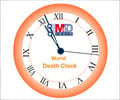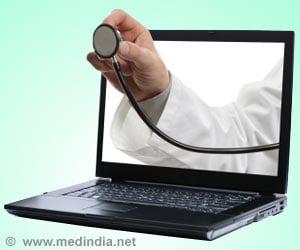If the “face is the index of the mind”, then an up-to-the-minute technology has made the eye the index of your health! Right from brain tumors to heart disease, this new range of high-tech eye scans can help detect your health problems even before they actually show up!
According to health experts, the new generation of high-tech eye scans is capable enough to tell to you about potential health risks.Tests offered to detect eye diseases such as glaucoma, cataracts and macular degeneration, and some other conditions such as diabetes can also provide an insight into the patients' health problems.
The eye has a huge potential as a means of diagnosing illness early where internal blood vessels and nerves can be viewed working undisturbed.
The tests offered by high street opticians and optometrists provide high-quality images, thus improving chances of detecting conditions such as high blood pressure, heart disease, multiple sclerosis, stroke, diabetes and brain tumors.
"Opticians have long been very good at assessing the front of the eye for problems like cataracts," Times Online quoted Andrew Coombes, a consultant eye surgeon at Barts and the London NHS Trust, as saying.
"But it's been more difficult with the equipment they've had to carefully examine the back of the eye, in particular, the whole retina and the point where the optic nerve joins it.
Advertisement
The high-resolution images of the retina at the back of the eye can reveal breaks or abnormalities in blood vessels that might suggest blood pressure problems.
Advertisement
"People shouldn't be frightened into having these tests, but they can provide a lot of reassurance," he said.
Source-ANI
TAN/L












